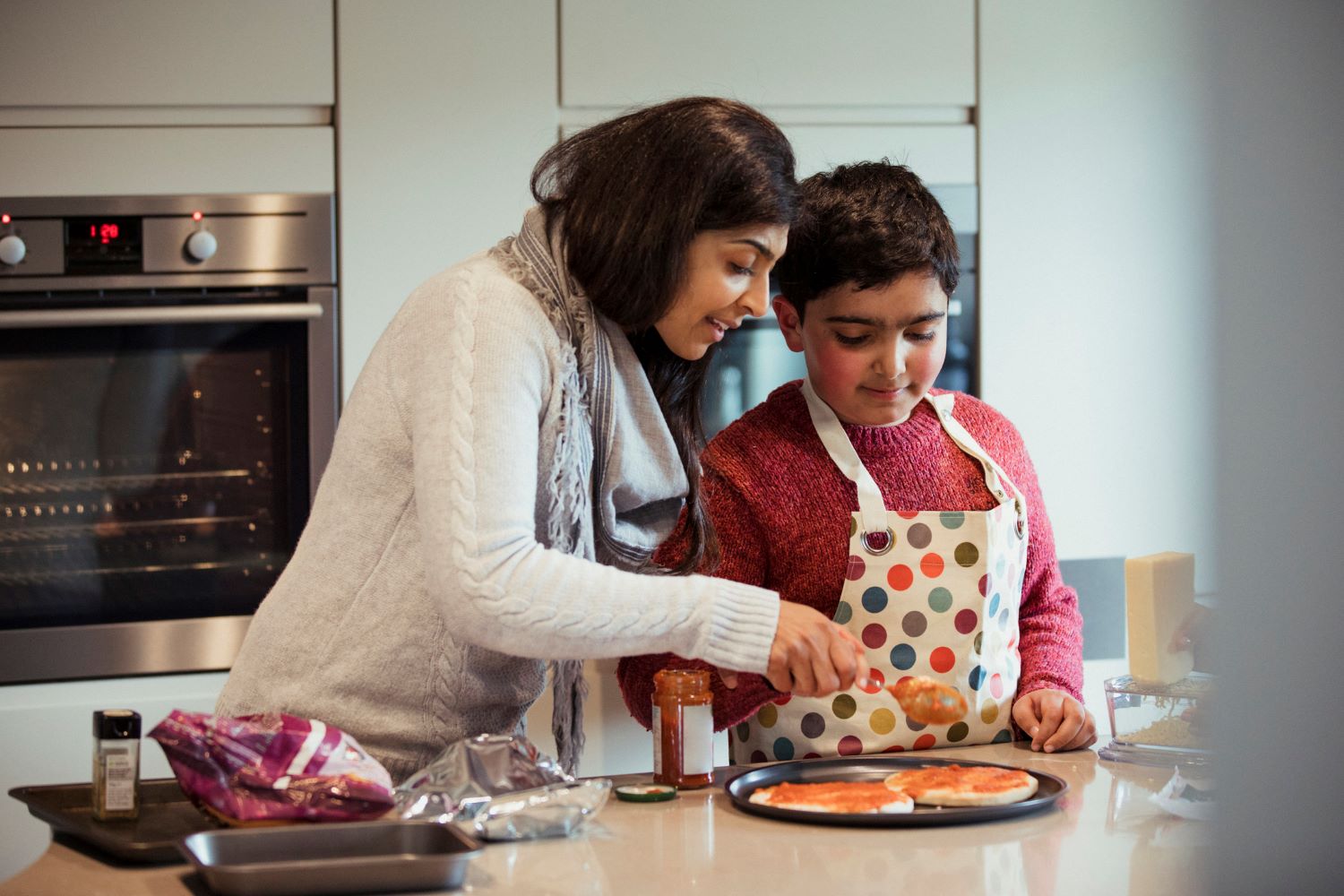Registered Dietitian Hannah Whittaker discusses some of the common difficulties parents and carers of autistic children report around mealtimes - and some of the techniques to reduce anxiety.
Autism is a spectrum condition that can affect how a person communicates and relates to the world around them. It is thought that around one in 100 people in the UK is autistic, and in the UK there are thought to be around 700,000 autistic children and adults.
Autism can affect children in many different ways. Some autistic children may find that they experience problems in relation to food and eating.

As a paediatric dietitian, I work with children who are autistic, and I help parents and carers to reduce anxiety around mealtime - making the environment a more enjoyable experience for the whole family.
I have found throughout my clinical work and research that there may be many different triggers that can impact a child's choice of foods. Below are some difficulties I have found that my patients have had with regard to diet:
Taste
I have learned from the children I have worked with that they may favour foods that are bland in flavour such as bread, pasta and biscuits. Conversely, foods that are highly flavoured such as salt & vinegar crisps, lemon and garlic bread are also favoured by some autistic children.
Texture
This can vary massively. Some children prefer a food that is crunchy as they like to receive the sensory feedback from the "crunch" of the food when they eat. Other children may prefer smooth foods and I have found that parents and carers may struggle to help their child with the transition from pureed to more solid foods. I have also found that some children may not like to touch wet foods, but may be okay to touch dry foods - this can impact on the variety of foods that are accepted.
Smell
Smell can not only impact on what a child eats but can also impact on a child's feelings throughout the day, and prior to the mealtime. If the smell of a food is very strong, such as when cooking stew or curry, or frying onions. This may cause anxiety for an autistic child, whether it is at mealtime or not. This can mean that although a child has a preferred range of ‘safe foods’, the smell of other foods cooking may be overwhelming and can impact on the child consuming the foods that they prefer.
Environment during eating
In my experience the majority of the autistic children I have worked with find the mealtime environment stressful, and sitting at a table may bring a lot of anxiety as it can be an overwhelming experience with regards to sensory exposure. There are different sounds and smells, and some foods may look strange - such as a mixture of wet and dry foods (e.g. roast dinner or lasagne). Allowing a child to eat where they prefer, whether this may be away from the family or at the table alone, can help reduce anxiety and also help a child to enjoy the mealtime environment.
The way the food is presented on a plate can also cause anxiety at mealtimes. Some children may prefer foods cut in a certain way (prefer toast in triangles rather than squares or carrots in batons rather than round) or foods on separate plates (not touching), especially if the meal is a mixture of wet and dry textures.
There are some techniques that can initially help to support a child at mealtimes, reduce anxiety and make the mealtime environment a happier place for the whole family. These techniques include:
-
Allowing the child to eat their preferred range of foods
-
Not trying to give new foods without preparing the child. Using social stories can help to support this
-
Not putting anything hidden in a food that a child enjoys eating, such as adding vegetables to a tomato sauce that the child enjoys - this may result in the child rejecting their favoured food
-
Not forcing or bribing a child to try a food; this will likely increase anxiety and make a child regress further. This may mean they become afraid of new foods (food neophobia). Allow the child to explore the food in their own time
-
Not forcing a child to sit at a table to eat their meal if this causes anxiety - allow the child to sit where they feel most comfortable
If there are concerns that a child has a severely restricted diet then there may be the need for a blood test to rule out nutritional deficiency.
During assessments I have also found that some autistic children may have severely restricted diets, and this may require artificial feeding to ensure appropriate growth. However, the majority of autistic children I have seen within my clinical practice have had no concerns with growth or nutritional deficiency. The dietitian plays a key role to ensure nutritional balance and advise on correct supplementation if needed.
It is important that the parent or carer is aware that their child may not eat a wide variety of foods, but what they are eating is supporting them to grow and develop - and that as a dietitian I share my knowledge and techniques I have researched to empower parents and carers.







